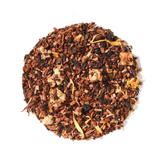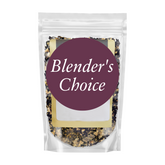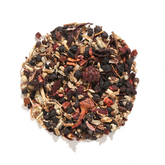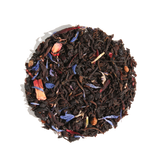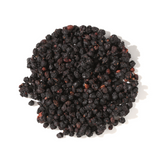The more I looked into it, however, the more apparent it became that they’re just as applicable to us today as they were to those medieval nuns. So let’s check out some more modern benefits of rosehip tea.

A Rosehip by Any Other Name
First off, what exactly is a rosehip? It’s the fruit of the rose flower, which starts forming after pollination and is usually ripe by autumn. It’s also called a rose haw or rose hep. While they can also be orange or even purple, they’re often bright red—which is no surprise, since roses are actually in the same family as apples and crab apples!
If you’ve never eaten or drank rosehip in one of its many forms—soups, sauces, jams, jellies, and of course tea—you might be wondering what the flavor is like. It’s floral and faintly sweet with a touch of tartness. This means that it plays well with a variety of flavors. For example, the Tender Loving Care herbal tea is one of my favorites (and not just because of the “tea”-LC pun), with its combination of rosehip, orange and lemon peel, and mango and apricot pieces. It makes for a bright, fruity tea that’s also good for you!

The Benefits of Rosehips
Speaking of which, rosehips have a ton of health benefits! Most well-known is its high vitamin C content (one of the highest among fruits and vegetables), making the aforementioned Tender Loving Care herbal tea and the Just Rosehips one of the best things to reach for when you’re feeling under the weather. Not to mention, herbal teas are also great for one of the most important parts of getting well: keeping you hydrated.
If you’re looking for both hydration and a preventative in the form of all of that Vitamin C, look no further than the Cozy Tranquil Dream herbal tea. Chamomile is known for hydration and sending you off to restful sleep, but bedtime isn’t the only time the versatile Cozy Tranquil Dream is good for.
It cold-brews beautifully, making it a great choice for hot summer days as well as chilly winter nights. Also, if you happen to forget it in the fridge while cold brewing (like me!), it’s very forgiving, as it doesn’t have the strong tannins of a black tea to make it bitter. While the mint is more bracing than normal, for me this just makes it all the better suited to warm weather.

Getting back to the star of the show, however, studies have shown that there are demonstrated antioxidant and anti-inflammatory properties in rosehips. Antioxidants are important for getting rid of free radicals, which are nasty little molecules your body produces when exposed to smoke or radiation, or even just when your system breaks down food. Left to their own devices, free radicals can cause all sorts of health problems, including heart disease, so a reasonable amount of antioxidants is a good addition to any diet.
Perhaps best of all is that rosehip does this gently, without the potential ulcers of certain medicines. While it’s no substitute for proper medical care, rosehips are a tasty and beneficial addition to any occasion!
*This content is not intended to be a substitute for professional medical advice, diagnosis, or treatment. All information and resources found within this article are based on the opinions of the author. Always seek the advice of your physician or other qualified health providers with any questions you may have regarding a medical condition.
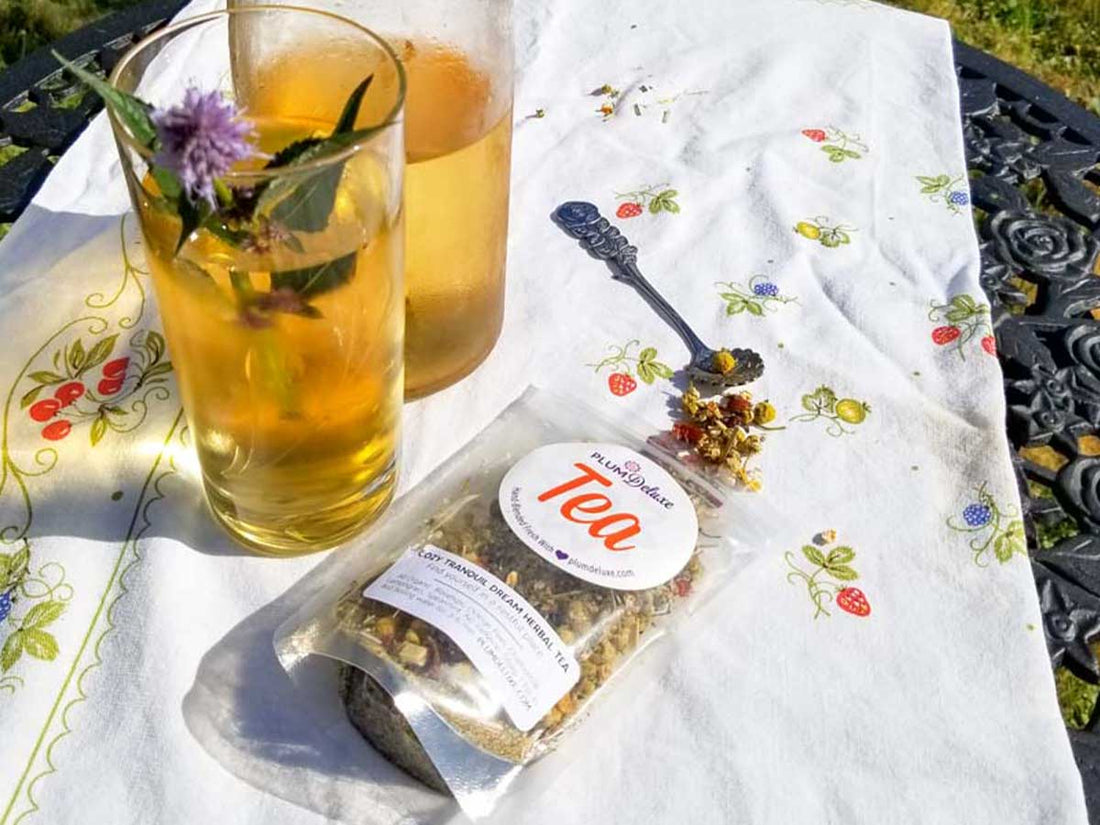
![Spring Break Tea Variety Pack [6-Pack Variety of Flavors]](http://www.plumdeluxe.com/cdn/shop/files/spring-break-pack.jpg?v=1740682266&width=165)

